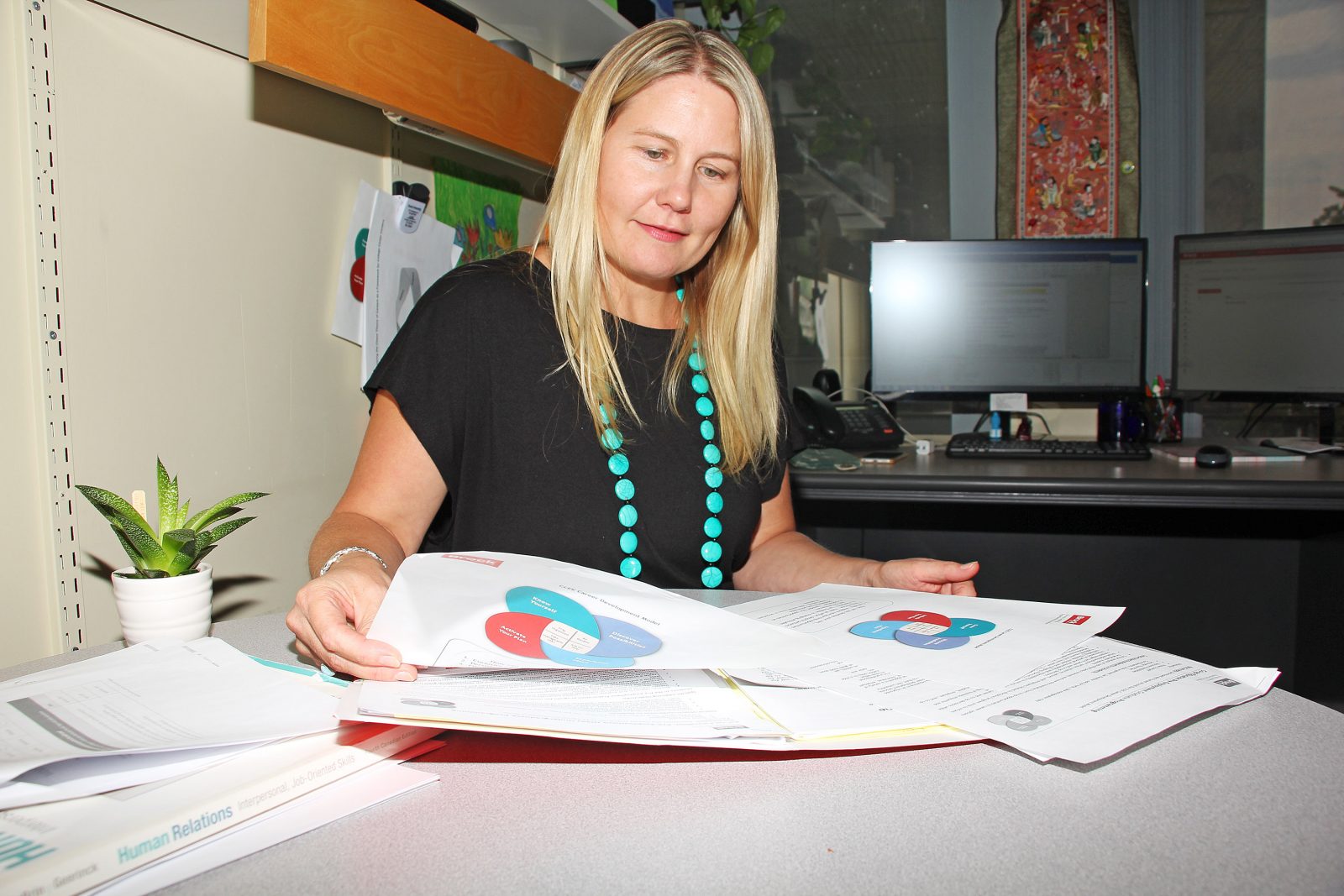 Brock Career Curriculum Specialist, Marisa Brown, examines portions a new career development model that will be used in co-op courses for undergraduate and graduate students this year.
Brock Career Curriculum Specialist, Marisa Brown, examines portions a new career development model that will be used in co-op courses for undergraduate and graduate students this year.Brock’s Co-op Education team has been revamping some key courses so they focus beyond helping students get a job, and also strengthen their longer-term career development.
The Co-op Education Professional Preparation Courses, which are compulsory for all undergraduate and graduate co-op students, have undergone major makeovers this past year.
The courses previously aimed to prepare students exclusively for their co-op job searches and work terms, but they now include hands-on exercises like occupational research and informational interviews with industry professionals that focus on long-term career success.
“We’ve taken feedback from student focus groups and have completely overhauled the course to enhance their experience and learning,” said Brock’s Associate Director of Co-op Education, Julia Zhu. “We want to ensure they feel like they are getting tangible results from a course that helps them succeed in achieving their objective of discipline-related employment.
“All of the things they are learning can be quickly applied, but also used long-term,” she said. “They are able to mobilize that knowledge and use it on their own for the entirety of their career.”
The University has long had a deep commitment to co-op education. Each year, its 40 programs put 15 per cent of Brock’s students into a wide range of experiential opportunities often resulting in employment upon graduation.
The new career development model used in the course builds on this foundation and encourages students to be flexible, stay organized, ask for help and take manageable risks.
To learn these lessons, students spend classes exploring traditional topics such as interview skills, as well as newer topics, including self-marketing strategies, transferable and essential skills identification, and networking and relationship building.
Using the in-class instruction to take chances on new opportunities and unforeseen interactions is key to career development and of particular importance to the new model, said Marisa Brown, Brock’s Career Curriculum Specialist.
“It’s exciting to get our students comfortable with chance and how to manage it,” she said. “Initially, chance can be intimidating, and can lead to students fearing the unknown situations they face. But when they learn to harness these situations, they discover ways to effectively manage their careers, both now and in the future.”
Brown also emphasized the change in instruction that comes along with the new learning model.
“The instructional techniques are now more of a facilitated style, with hands-on activities and online modules,” she said, “rather than the lecture-focused approach that we used in the past.”
With the new model set to roll out this fall, both Zhu and Brown hope it will begin to expand beyond co-op to further the employability of all Brock students, who, at 98 per cent, already enjoy one of the highest graduate employment rates in the country.
“The course serves as a launch pad for the career development model to begin to seep into much of the University and to work with different campus partners and Faculties,” said Zhu. “We hope that as students complete the course and reflect on the experiences they have had at Brock, they will begin to think about their studies and careers in a more holistic way to better prepare them for the transition to the workplace that lies ahead.”








